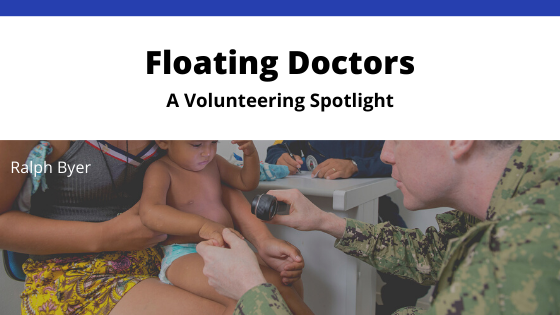Floating Doctors is an organization that provides locum tenens medical and humanitarian aid services to poor, remote, underserved, as well as ravaged areas throughout the world. It was established nearly a decade ago, and its first mission involved the deployment of medical volunteers and support staff, along with 20,000 pounds of aid supplies, to assist in the 2010 Haiti earthquake relief efforts.
Locum tenens comes from the Latin phrase “to substitute for or hold one’s place.” This practice originated in the U.S. in the 1970s. It pertains to providing temporary medical coverage for areas where regular services are not available, such as when a physician or other professional vacate their post, is on sabbatical or medical leave, or even an unexpected death occurs. These are temporary assignments ranging from a few days to several months if needed.
While locum tenens is often associated with the medical field, there are other professions, such as teaching, secretarial/office staff, clergy, and missionary work, that frequently employ this practice to address staffing shortages due to illness, vacancies, or other circumstances.
The mission of Floating Doctors is to help reduce and ameliorate disease in the developing world as well as promote improvements in health care access and delivery globally. The goals of this mobile aid organization include the following:
–Access to free acute and preventative health care services
–Reducing child, maternal, and overall mortality as well as morbidity rates
–Bolstering access to medical care and specialty services in developing regions
–Promoting improvements in health care practice on a global scale
–Gathering clinical data for program and health landscape surveillance
–Forging alliances with local groups and other humanitarian associations that can allocate resources to help with community development as well as capacity initiatives.
Remote, poverty-stricken, and underserved communities worldwide depend on the existence of organizations such as Floating Doctors for access to basic healthcare services. Essentially, they serve the same function as primary care providers in the United States. Floating Doctors employ various medical professionals, support staff, volunteers, and fellows, all of whom navigate areas that are geographically remote, poverty-stricken, devastated by natural disasters, feature rugged terrain, strife with political unrest, are socially disenfranchised, or lack health knowledge and infrastructure. These barriers serve as significant obstacles to basic healthcare services and community development.
